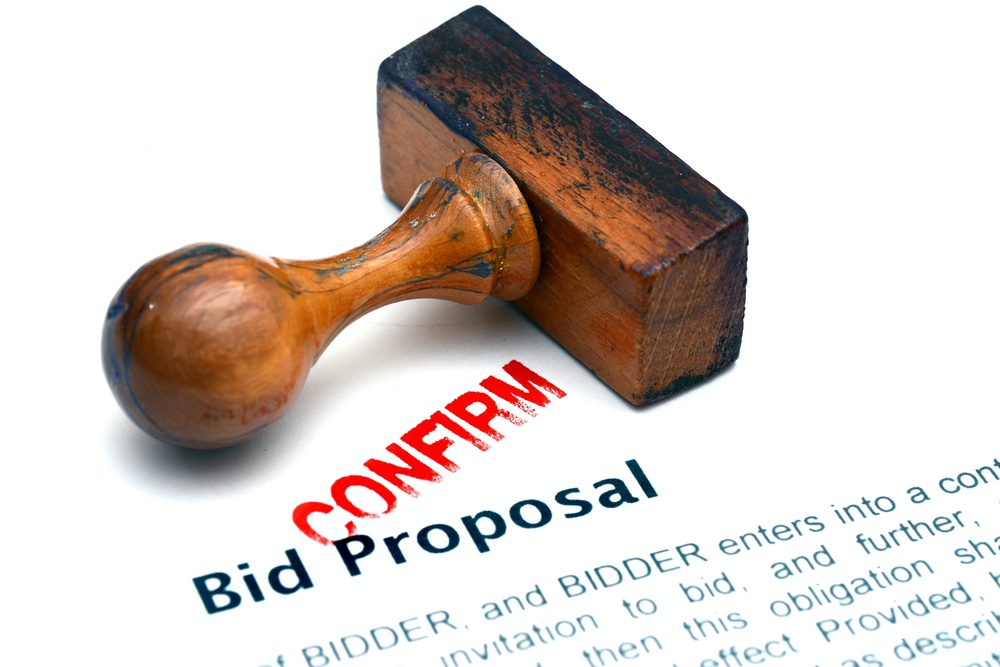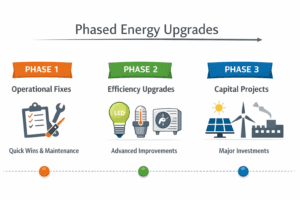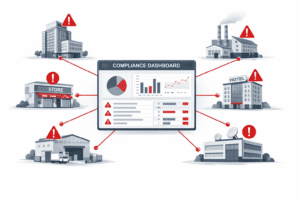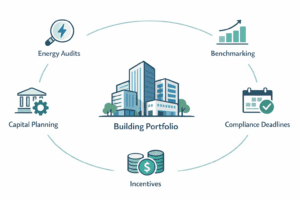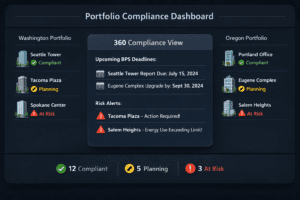Introduction
In today’s competitive business landscape, government contract bidding plays a crucial role in securing profitable projects for organizations. However, navigating the complex bidding process can be challenging, and costly errors can derail even the most promising opportunities. In this blog, we will explore the importance of government contract bidding and delve into the common mistakes that lead to costly errors. By understanding the nuances of the bidding process and implementing effective strategies, businesses can enhance their chances of success and avoid potential pitfalls. So let’s dive in!
I. Understanding the Bidding Process
a. Overview of government contract bidding:
Government contract bidding involves the submission of proposals by organizations in response to solicitations issued by government agencies. These proposals outline how the bidder plans to fulfill the requirements specified in the contract. The bidding process is governed by regulations to ensure fairness, transparency, and the selection of the most qualified contractor.
b. Key steps involved in the process:
- Researching contract opportunities: Conduct comprehensive market research to identify viable government contracts that align with your organization’s capabilities and goals. Explore online databases, government procurement websites, and industry reports to stay updated on upcoming opportunities.
- Assessing eligibility and qualifications: Before investing time and resources, verify your organization’s eligibility and qualifications for the contract. Ensure you meet all prerequisites, such as certifications, licenses, and past performance requirements.
- Understanding the contract requirements: Thoroughly review the solicitation documents and understand the scope, specifications, performance expectations, and evaluation criteria. Identifying the key deliverables and milestones will help you craft a compelling proposal.
- Estimating costs and budgeting: Accurate cost estimation is crucial for determining the profitability of the contract. Consider direct and indirect costs, materials, labor, subcontractors, and other relevant expenses. Develop a realistic budget that aligns with the contract requirements.
- Preparing and submitting a compelling proposal: Craft a well-structured, persuasive proposal that clearly addresses the contract requirements. Ensure you provide the necessary documentation, such as financial statements, past performance records, and technical expertise. Adhere to the submission guidelines and deadlines specified in the solicitation.
c. Importance of thorough research and preparation:
Thorough research and preparation are the foundations of a successful bid. By investing time and resources into understanding the bidding process, contract requirements, and market dynamics, you can position your organization as a competitive candidate. Thorough research also helps in identifying potential risks, competitors, and opportunities for differentiation.
II. Costly Errors to Avoid
a. Lack of proper eligibility and qualification verification:
One of the most common and costly errors in government contract bidding is failing to verify your organization’s eligibility and qualifications. Before investing effort into the bidding process, ensure you meet all the specific requirements outlined in the solicitation. Lack of verification can lead to disqualification, wasting valuable time and resources.
b. Insufficient understanding of contract requirements:
Inadequate comprehension of contract requirements can lead to costly errors during the bidding process and contract execution. Thoroughly review the solicitation documents to gain a clear understanding of the project’s scope, technical specifications, performance expectations, and evaluation criteria. Failing to address specific requirements can result in a weaker proposal and potential contract disputes.
c. Inadequate cost estimation and budgeting:
Accurate cost estimation and prudent budgeting are essential for winning bids and ensuring profitability. Inadequate cost estimates may lead to underpricing, making it challenging to deliver on the contract’s obligations while maintaining profitability. Conversely, overestimating costs may make your bid uncompetitive. A comprehensive understanding of the project requirements and thorough cost analysis will help you formulate realistic and competitive pricing models.
d. Neglecting to review and comply with regulations:
Government contracts come with a myriad of regulations and compliance requirements. Neglecting to review and comply with these regulations can result in disqualification or even legal consequences. Familiarize yourself with the specific regulations governing the bidding process and contract execution, ensuring that your organization meets all necessary compliance standards.
e. Poor proposal preparation and submission:
The quality of your proposal is pivotal to winning government contracts. Poorly prepared proposals that lack structure, clarity, or fail to address evaluation criteria can hinder your chances of success. To avoid this pitfall, invest in developing strong proposal writing skills, create clear value propositions, and tailor your proposal to the specific requirements outlined in the solicitation. Attention to detail, persuasive language, and adherence to submission guidelines are crucial.
III. Strategies for Success
a. Conducting comprehensive market research:
Thorough market research is integral to identifying lucrative government contract opportunities. Stay updated on industry trends, government initiatives, and agency needs. Engage with industry associations, attend procurement events, and build relationships with key stakeholders to gain insights into upcoming projects. Analyze past contracts to understand the agency’s preferences, evaluation criteria, and potential areas of improvement.
b. Building strong relationships with contracting officers:
Developing relationships with contracting officers can provide valuable guidance and increase your chances of success. These officers are responsible for evaluating proposals and selecting winning bidders. Engaging in open communication, seeking clarification on solicitations, and understanding their evaluation priorities will help you tailor your proposal to meet their expectations.
c. Developing a competitive pricing strategy:
Pricing is a critical factor in winning government contracts. By conducting thorough cost analysis, benchmarking against competitors, and understanding the value you bring to the project, you can develop a competitive pricing strategy. Consider the direct and indirect costs, market rates, and the agency’s budget constraints to ensure your bid is both competitive and profitable.
d. Enhancing proposal writing skills:
Investing in strong proposal writing skills is crucial for effectively communicating your organization’s capabilities and value proposition. Craft clear, concise, and compelling narratives that address the contract requirements and highlight your competitive advantages. Incorporate persuasive language, visual aids, and supporting evidence to strengthen your proposal.
e. Engaging in regular performance evaluations:
Continuous evaluation of your past performance on government contracts allows you to identify areas for improvement and showcases your track record. Collect feedback from project managers and contracting officers to enhance your future proposals. Highlighting successful project delivery and customer satisfaction in your proposals increases your credibility and strengthens your chances of winning contracts.
IV. Best Practices for Avoiding Pitfalls
a. Establishing a robust compliance management system:
Create a comprehensive compliance management system that ensures adherence to all regulations and requirements. Regularly review and update internal processes, implement quality control mechanisms, and conduct employee training to mitigate compliance risks.
b. Utilizing bid analysis and review techniques:
Utilize bid analysis tools and techniques to objectively evaluate your proposals. Conduct comprehensive reviews to identify strengths and weaknesses, analyze competitor proposals, and fine-tune your approach. Embrace a continuous improvement mindset and make data-driven decisions based on past bid analysis.
c. Seeking mentorship or guidance from experienced contractors:
Engaging with experienced contractors or seeking mentorship from industry experts can provide invaluable insights and guidance throughout the bidding process. Leverage their experience, learn from their successes and failures, and apply their strategies to enhance your own bidding approach.
d. Continuous improvement and learning from past mistakes:
Adopt a culture of continuous improvement by analyzing and learning from past mistakes. Conduct post-mortems on unsuccessful bids to identify areas of improvement and implement corrective actions. Regularly assess internal processes, solicit feedback from project teams, and adapt your bidding strategies accordingly.
V. Conclusion
Successfully navigating the government contract bidding process requires a deep understanding of the intricacies involved and a proactive approach to avoid costly errors. By comprehending the bidding process, recognizing common pitfalls, and implementing effective strategies, organizations can enhance their chances of securing profitable government contracts. Thorough research, meticulous preparation, continuous improvement, and adherence to compliance standards are the building blocks of success. Remember, each bid is an opportunity for growth and learning, so embrace the journey and strive for excellence in government contract bidding.
Unlock the full potential of your contracting business with VertPro.com, your key to enhanced lead generation. At VertPro.com, we specialize in empowering Contractors like you with a range of cutting-edge solutions and exclusive access to our state-of-the-art Construction Marketplace. As industry trailblazers, we’re dedicated to providing innovative SaaS technology-based tools that help you stay ahead of the curve.
With our expertise in Commercial Energy Audits, Energy Benchmarking and Energy Audits/RCx Plus, we ensure your clients’ compliance with more than 60 Energy Benchmarking and Energy Efficiency Laws.
Now is the perfect moment to seize this opportunity and supercharge your lead generation efforts. Sign up for VertPro.com’s comprehensive solutions today and let us be the catalyst for the transformation your contracting business deserves. Your journey to a more energy-efficient future starts right here!



